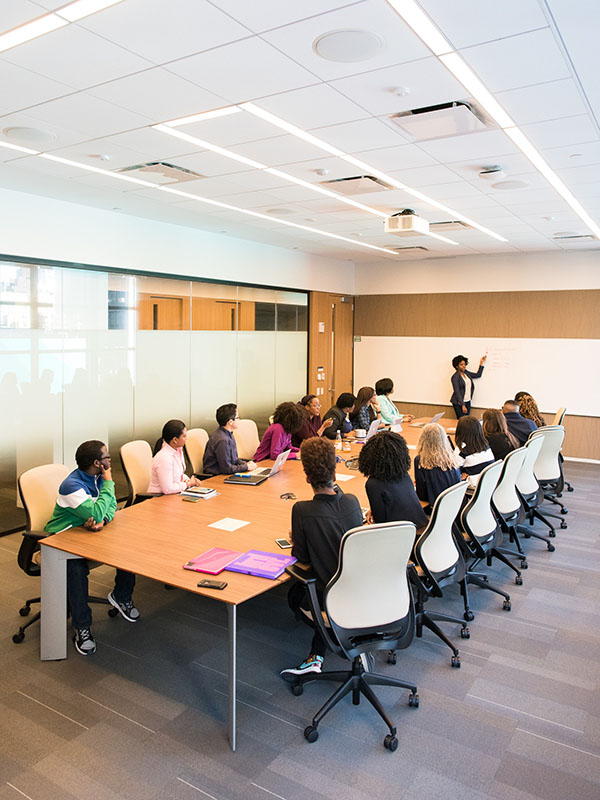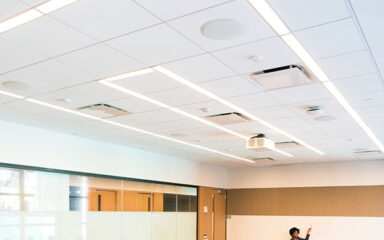
This is, admittedly, a pretty boring post, and unfortunately, it’s going to be followed by another pretty boring post, but I promise the post after that will be fun and you’ll get a special reward at the end of this whole thing.
The reason I’m hitting you with not just one but two consecutive boring posts is that this is an important topic, and some important topics just aren’t all that fun.
Diving right into the boring: Agencies returning, or not returning, or partially returning, to the office. As more and more people in the U.S. are getting vaccinated, agencies are talking more and more about moving from the fully remote setup of the past year to one that’s more office-centric. Many agencies were aiming for a late-May return and have shifted more toward summer or even fall because, well, reality. The country isn’t quite as prepared for in-person contact en masse as had been predicted, and agencies are finding that return plans are sometimes more complex than originally anticipated.
Some companies — major ones — already plan to go back to the office. Some already plan to remain virtual, or go hybrid. Some agencies are sending out surveys to employees to see what they think about the whole thing, which is a great idea. You might should try that, if you aren’t already. And while you’re surveying your employees, it’s a great time to ask yourself some questions about management-level decisions that will have a strong impact on your agency’s next steps
Who’s been struggling since we went remote, and who’s actually been thriving?
A lot of people struggled to adapt when agencies went full-remote, and while they managed to make it work, they’ve been counting the days until they can get back to their old way of working. For them, in-person interactions, both professional and social, are essential to agency life. A lot of other people, however, have discovered that working from home is The Best Thing Ever, and that their productivity, job satisfaction, and mental health have actually improved over the past year. A Pew Research study shows that 54 percent of workers in the U.S. want to stay remote after the pandemic ends, and another third would like to stay at least partially remote.
What if a parent has been able to better focus on work because they can also spend more time with their kids and not worry about being one of those movie parents who never makes it to the Little League game? What if a neurodivergent employee is more productive, more focused, and vastly happier without the bustle, noise, and not-always-necessary social interaction that comes with agency office life? (Not that I have personal experience with that or anything.) What if an employee who doesn’t even have any particular needs in that department has just found that working from home works better for them?
How ya gonna keep your introverted/neurodivergent/family-having employees down on the farm after they’ve seen remote work?
A return to mandatory, full-time, in-person attendance can do a lot for your employees who’ve been craving personal interaction. It also has the potential to do a lot of harm to those employees who’ve been thriving at home. It can even send a message that management doesn’t care about their well-being, which is a message you absolutely don’t want to send.
Why do I really want to come back to the office so much? I mean, really?

Be honest.
No, seriously, be honest. With yourself. It might sting a little.
Why is it so important for you to have all your employees back in the office?
Is it possible (and I’m not saying anything here, just throwing it out there) you really want to be able to see everyone at their desk and on task? Is it possible that you see staying constantly on task as an essential part of an employee’s job, just as much as productivity and quality of work? Could it be that maybe, despite the productivity you’ve been seeing during the past year, you’re still itching to get back to the way it was?
Here’s the thing: You’ll be okay. If everyone has managed to stay on task and productive while working remote, there’s no reason they’ll stop doing that just because some of them are no longer remote. And if everyone hasn’t managed to stay on task and productive, you’ve got a bigger problem than making sure butts are in seats.
Now, it could be something else entirely. I don’t know your life. But this is a great opportunity to show your employees how much you trust them. And for employees, knowing management trusts them is a huge boost for morale, confidence, and an overall sense of unity.
(Besides, come on: We all know that, like, 60 percent of the advertising creative process is dicking off and chit-chatting about unrelated things and such. Let’s not kid ourselves that everyone is always on task when they’re in the office.)
What is everyone else doing?
This isn’t a peer-pressure thing or a following-the-crowd thing. This is a thing about whether your competitors are offering a more accommodating work environment for their employees than you are. It’s really, really easy to change jobs in a remote environment — you don’t even have to transfer your succulents from one cubicle to another. If another agency has an opening, and all your employee would have to do is drop their laptop off at your front desk and update their LinkedIn, you could lose a valuable member of your team (and your competitor would gain one).
Many agencies — even some of the bigs — are considering delaying a return to the office or providing a hybrid option. Non-agencies Google and Twitter famously have allowed their employees to stay remote indefinitely. And said one unnamed copywriter in the Digiday article, “It makes me consider moving there. If I’m going to one day jump in-house, I’d for sure consider a company like Twitter or Google that’s flexible and built to withstand this long-term.”
Are you gonna just sit back and let other agencies snake your employees like that?
You do you.
And when I say “you do you,” of course I mean “do what I’m clearly advising you to do here.” But what I’m advising you to do is to take into consideration your agency’s needs — its actual needs, not just the needs you’ve been thinking it has — and use this opportunity to innovate, to serve your employees in a way you’d never thought to serve them before.
One of the most relevant contributions to the conversation might be one from Simon Fenwick, EVP of talent, equity, and inclusion for the 4A’s: “Most agencies are taking a very cautious approach to returning to the workplace — they’re saying a return to workplace, not a return to work, because obviously we’re all still working.” Studio We Are Royale is considering only re-opening for employees whose jobs have been hampered by remote access to their servers. It doesn’t have to be all one or the other — you can, and should, customize your post-pandemic work plan taking advantage of every option available.
Now: I’m confident that I’ve convinced you to choose a nice, customized hybrid plan for your post-pandemic operations. I’m proud of you. Next week, check back for more questions you can ask yourself about how you can make those newfangled operations work for you, your employees, and your agency as a whole. And there might just be a special surprise at the end.

